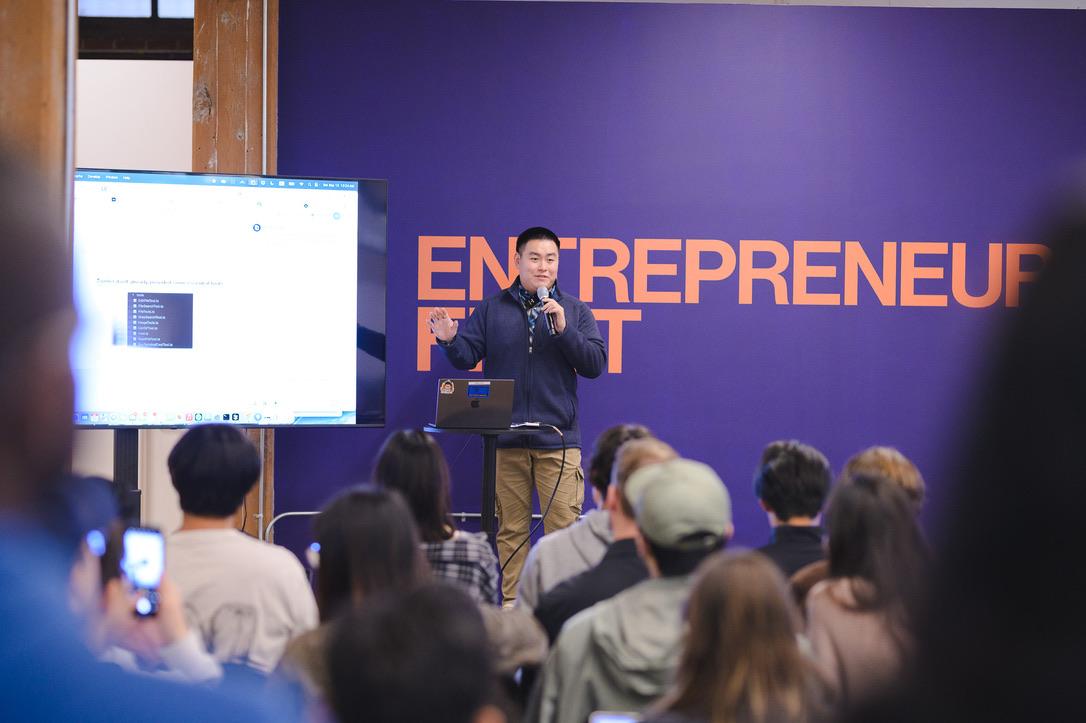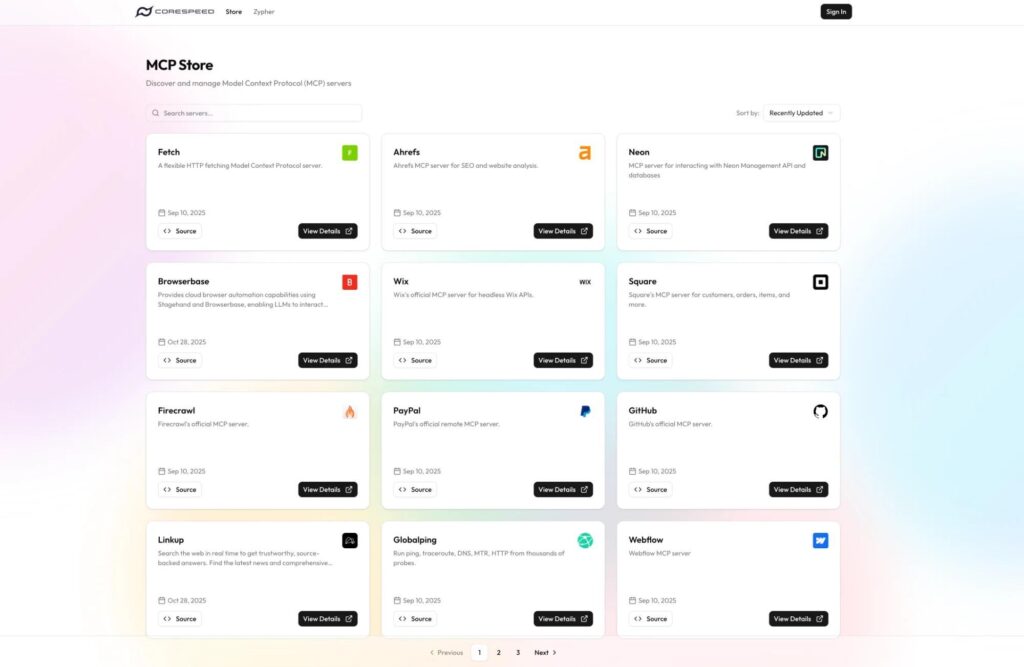BY Ethan King
Spencer Zhao, co-founder of CoreSpeed, is pioneering MCP Store—the first comprehensive marketplace for Model Context Protocol servers designed to transform how AI agents discover and access tools. With roots in leading development teams since age 18 and deep expertise in scalable systems, he built MCP Store to solve the critical bottleneck of AI tool discovery and monetization. As part of CoreSpeed’s agent-native infrastructure vision, MCP Store enables developers to upload and monetize their servers while making AI capabilities as accessible as downloading smartphone apps. Find out more in this interview with TechBullion.
Please tell us more about yourself.
I’m Spencer Zhao, co-founder of CoreSpeed, where we’re building agent-native infrastructure for the AI era. I’ve been leading development teams since I was 18, which gave me early insights into both the technical challenges and human dynamics of building complex systems. This experience taught me that the hardest problems aren’t always technical—they’re about making powerful technology accessible to everyone.
At CoreSpeed, I’m spearheading MCP Store, which I believe is the missing piece in the AI ecosystem. We’re creating a marketplace where developers can upload and monetize MCP servers while making these tools accessible to all AI users, not just developers.
What inspired you to create MCP Store, and how did you identify this gap in the AI infrastructure?
The spark came immediately after Anthropic released the Model Context Protocol in November 2024. Within 2 weeks, we saw hundreds of MCP servers being built—incredible tools for database connections, API integrations, specialized computations. But they were invisible to 99% of potential users, scattered across GitHub repos and Discord channels.
I watched a brilliant business strategist friend spend an entire afternoon trying to connect their AI to their company database before giving up. That’s when it hit me—we had this revolutionary protocol, but no infrastructure for discovery and distribution. MCP Store emerged from this realization: we needed to make AI capabilities as easy to find and use as smartphone apps.
You describe MCP Store as ‘agent-native infrastructure.’ How does this fundamentally differ from traditional app stores?
Traditional app stores were designed for humans downloading static applications. MCP Store operates in a completely different universe—built for AI agents that need dynamic capabilities, stateful connections, and continuous operation.
Our infrastructure assumes long-running, contextual interactions. MCP servers maintain sessions, cache data, understand context across multiple interactions. Our edge network ensures sub-100ms latency globally because AI conversations can’t have lag.
We’re building infrastructure where both humans and AI agents can discover and connect capabilities, designed for an autonomous future where AI agents can independently find and integrate the tools they need.
The ability for developers to upload and monetize MCP servers is central. Can you walk us through the economics and why this represents a breakthrough?
Developers upload their MCP servers through our Developer Portal, choose their preferred pricing model, and we handle everything else—hosting, scaling, payments, compliance. But what makes this revolutionary is the usage-based economic model.
Unlike traditional software where you fight for one-time purchases, our model creates compounding revenue streams. A developer builds a QuickBooks integration server. A small business connects it, uses it daily. As their business grows, usage increases. The developer earns revenue on every API call, creating sustainable, growing income.
Developers keep the majority of revenue while we handle all infrastructure. The network effects are powerful: users who connect one server discover others, making every server more valuable for the entire ecosystem.
Why did you choose usage-based pricing, and how does it create value for the ecosystem?
Usage-based pricing aligns everyone’s incentives perfectly. Users only pay for actual value—a startup doing 10 queries daily pays pennies while an enterprise pays proportionally more. Zero barrier to trying new servers.
For developers, it transforms the business model. They earn money every time their server delivers value. A well-integrated server becomes a compounding asset. The stickiness is natural—once woven into daily operations, replacing it isn’t just expensive, it’s operationally disruptive. This creates predictable, growing revenue streams.
Beyond individual users, what are the most compelling enterprise and industry-specific use cases emerging?
Enterprises need governed deployment—MCP Store becomes their capability management layer. IT pre-approves servers, sets budgets, monitors usage across thousands of employees.
Vertical ecosystems are exploding. Healthcare needs HIPAA-compliant servers. Financial services need regulatory-aware tools. We’re seeing developers charge $10,000+ monthly for specialized servers because they handle complex compliance.
Small businesses might be most revolutionary—they get enterprise capabilities without enterprise costs. A restaurant connects AI to inventory, reservations, reviews, accounting. They compete on intelligence, not resources.
With fresh investment secured, what’s your vision for MCP Store over the next few years?
Short-term, we have three critical priorities. Launch the Developer Platform to create supply-side critical mass—1,000+ servers by end of 2026. Target 100k active connections through user acquisition. Scale infrastructure for millions of daily API calls.
Long-term, MCP Store will become the foundation layer for AI capabilities—as essential as app stores for mobile. Developers will build million-dollar businesses purely on MCP development.
But the real transformation is democratization. A farmer in Kenya accesses the same AI tools as Silicon Valley. Students worldwide enhance their education with enterprise-grade capabilities. That’s our vision at CoreSpeed—making AI’s promise universally accessible.





































